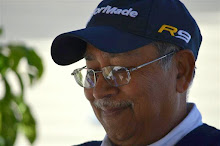The Valley’s Shadow
Mussoorie in December—Mossauri, as the old-timers call it—is a town of two moods. By day, the Mall Road is alive with colour and chatter: tourists bundled in bright woollens, children clutching balloons, women bargaining for shawls, the air heavy with the smell of roasted corn, barbecued meat, and spicy golgappas that make one’s eyes water. By night, however, the mist swallows the lamps one by one, and the valley turns into a dark, endless gulf, watching silently from below.
It was here, in this curious town of shifting faces, that I met Mr. Bisht. He wasn’t a local—just another tourist like me. We happened to be staying in the same hotel, and one December evening, when the cold pressed harder than usual, we both found ourselves in the lounge.
The drawing room was warm, lined with shelves of books, the fireplace alive with logs hissing and snapping. I sat with a cup of tea in my hand, grateful for the fire’s glow. Bisht, a tall, thin man with snow-white hair and restless eyes, settled opposite me.
At first, our talk was small and harmless—the cruelty of the mountain cold, how his wife’s arthritis had kept her confined to their room, the cheerfulness of the tourists who seemed to thrive on the chill. But soon, his voice grew quiet, and he stared into the flames.
“There is something about this place,” he murmured, “that refuses to rest.”
He told me what had happened to him only the previous evening.
The hotel car had dropped him at the Mall Road, where the crowd moved like a festival procession. Families clustered around golgappa stalls, laughing through the sting of spice. Vendors rubbed lime across hot corn cobs, their smoke curling into the frosty air. At a corner, skewers of kebabs sizzled, the firelight flickering on hungry faces.
“I didn’t go for those things,” Bisht said with a faint smile. “Too old, too delicate a stomach. I went searching for one thing only—kachoris.”
He found the tea stall soon enough, tucked beside a wool shop, its bubbling oil perfuming the entire stretch of road. The vendor greeted him warmly, served him his paper packet, and exchanged a few words about the biting cold and the chance of snow. With his treasure in hand, Bisht walked to one of the canopies overlooking the valley.
Evening had descended quickly. The valley was already black, a sea of mist and shadow. He sat on the wooden bench, opened his kachoris, and let the warmth battle the cold.
That was when he saw them.
A young man, pacing nervously, checking his watch again and again. Moments later, a second figure appeared—older, broader, with a face set in stone.
“They spoke, argued, perhaps even shouted,” Bisht said softly. “But the mist muffled everything. And then… they struggled. A shove, a clutch, and in an instant both men tumbled into the valley. Gone. No cry, no echo—just silence.”
Before the shock could settle, a girl ran into view. Her shawl slipped from her shoulders as she grabbed a letter from the bench, read it, and without pause leapt into the same abyss.
Bisht’s hands shook as he spoke. “All in a matter of minutes. And I—mute, frozen—watched it happen.”
He had staggered back, found a policeman, and poured out the tale. The man only patted his shoulder and told him to return to the hotel. At another tea stall, Bisht tried again. This time, the locals only nodded gravely.
“You have seen it too,” they told him. “The old love story. A tragedy of a boy and girl from different castes. They died here long ago. Sometimes, tourists see it as if it were happening again. No bodies, no proof. Only the valley remembering.”
At this point, Bisht leaned closer to me, the firelight flickering in his glasses.
“But why me?” he whispered. “Why should I be chosen to watch their end? I’m not local—I had never even heard of such a story. Unless…” His voice trailed, but his eyes burned with unease.
“Unless I am bound to them. By blood, by fate. Perhaps the girl was of my family, and seeing me stirred the valley’s memory. Perhaps their secret lives in my veins. Should I trace their families? Get my DNA mapped? Find the truth that my ancestors buried?”
The fire cracked loudly, making me startle. Shadows loomed larger in the corners of the room. Outside, the wind moaned across the valley, carrying with it what might have been nothing more than air—or might have been the faint echo of three souls, falling still.
For the first time that night, the fire’s warmth felt useless.




